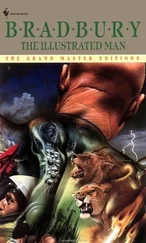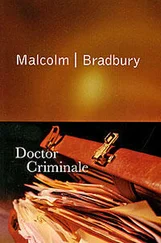Malcolm Bradbury - The History Man
Здесь есть возможность читать онлайн «Malcolm Bradbury - The History Man» весь текст электронной книги совершенно бесплатно (целиком полную версию без сокращений). В некоторых случаях можно слушать аудио, скачать через торрент в формате fb2 и присутствует краткое содержание. Жанр: Современная проза, на английском языке. Описание произведения, (предисловие) а так же отзывы посетителей доступны на портале библиотеки ЛибКат.
- Название:The History Man
- Автор:
- Жанр:
- Год:неизвестен
- ISBN:нет данных
- Рейтинг книги:3 / 5. Голосов: 1
-
Избранное:Добавить в избранное
- Отзывы:
-
Ваша оценка:
- 60
- 1
- 2
- 3
- 4
- 5
The History Man: краткое содержание, описание и аннотация
Предлагаем к чтению аннотацию, описание, краткое содержание или предисловие (зависит от того, что написал сам автор книги «The History Man»). Если вы не нашли необходимую информацию о книге — напишите в комментариях, мы постараемся отыскать её.
The History Man — читать онлайн бесплатно полную книгу (весь текст) целиком
Ниже представлен текст книги, разбитый по страницам. Система сохранения места последней прочитанной страницы, позволяет с удобством читать онлайн бесплатно книгу «The History Man», без необходимости каждый раз заново искать на чём Вы остановились. Поставьте закладку, и сможете в любой момент перейти на страницу, на которой закончили чтение.
Интервал:
Закладка:
II
The Kirks are, indeed, new people. But where some new people are born new people, natural intimates of change and history, the Kirks arrived at that condition the harder way, by effort, mobility, and harsh experience; and, if you are interested in how to know them, and feel about them, then this, as Howard will explain to you, is a most important fact to possess about them. The Kirks are now full citizens of life; they claim historical rights; they have not always been in a position to claim them. For they were not born into the bourgeoisie, with its sense of access and command, and they did not grow up here, in this bright sea-coast city, with its pier and beach, its respectable residences and easy contact with London, its contact with style and wealth. The Kirks, both of them, grew up, in a grimmer, tighter north, in respectable upper working-class cum lower middle-class backgrounds (Howard will gloss this social location for you, and explain its essential ambiguity); and, when they first met each other, and married, some twelve years ago, they were very different people from the Kirks of today: a timid, withdrawn pair, on whom life had sat onerously. Howard was that conventional product of his circumstances and his time, the fifties: the scholarship boy, serious and severe, well-read in the grammar-school library, bad at games and humanity, who had got in to Leeds University, in 1957, by pure academic effort-a draining effort that had, in fact, left him for a time pallid in features and in mind. Barbara was inherently brighter, as she had to be, since girls from that background were not pushed hard academically; and she made it to university from her girls' grammar school, not, like Howard, through strong motive, but through the encouragement and advice of a sympathetic, socialistic teacher of English, who had mocked her sentimental domestic ambitions. Even at university they had both remained timid people, unpolitical figures in an unpolitical, unaggressive setting. Howard's clothes then always managed to look old, even when they were new; he was very thin, very bleak, and had nothing to say. He was reading sociology, then still a far from popular or prestigious subject, indeed a subject most of the people he knew thought very weighty, Germanic, and dull. He had dark yellow nicotined fingers, from smoking Park Drives, his one indulgence or, as he called it then, with a word he has dropped, his vice; and his hair was cut, very short, when he went home, irregularly, at weekends.
Over this time he was interested in society only in theory. He rarely went out, or met people, or looked around him, or acquired anything other than an abstract grasp of the social forces about which he wrote his essays. He worked very hard, and ate his meals with the backstreet family with whom he had digs. He had never at that time been into a restaurant, and almost never into a pub; his family was Wesleyan and temperance. In the third year he met Barbara, or rather Barbara met him; after several weeks, with her taking the initiative, she started sleeping with him, at the flat she shared with three other girls; and she discovered, what she already suspected, that he had never been into a girl either. They grew attached to each other in that third year; though Howard was determined that personal matters should not interrupt his revision for finals. He sat at night with her in the flat, reading over texts, in extended silence, until at last they withdrew into the bedroom with a hot water bottle and a welcome cup of cocoa. 'All we did was huddle together for warmth,' says Howard, in subsequent explanation. 'It was never a relationship.' But, relationship or not, it was hard to break it. In the summer of 1960, they both graduated, Howard getting a first, and Barbara, who had not taken much interest in her English course, and spent more time over Howard's revision than her own, a lower second. Now their course was at an end, they found it hard to separate, to go their different ways. As a result they committed themselves to an institution which, as Howard nowadays explains, is society's technique for permanentizing the inherent contingency of relationships, in the interests of political stability: that is to say, they got married. It was a church wedding, or rather a chapel one, with many relatives and friends, a formal procedure designed to please both their families, to whom they both felt very attached. They had a honeymoon in Rhyl, taking the diesel train and staying in a boarding house; then they returned to Leeds, because Howard was to begin work on his thesis. He was now, on the strength of his good first, a research student, with an SSRC grant, which seemed ample to support them both. So he set to work on his project, a fairly routine sociology-of-religion study of Christadelphianism in Wakefield, a topic he had picked because when younger he had felt a spiritual fascination with the denomination, a fascination he now proceeded to convert into a sociological concern. As for Barbara, she became, of course, a housewife, or rather, as she put it, a flatwife.
For they now began living in a succession of bedsitters and small flats, with old high-level beds with heads and feet, and Victorian lavatories called 'Cascade', and moquette furniture, always looking out over rotting gardens. The gardens, the houses backing onto them, the back streets, the corner shop, the picture-house, the bus routes into the city centre, formed the main horizon and track of their lives, the limit and circumscription of their world. They took some pleasure in being married, because it gave them a sense of being 'responsible'; and they reported home, frequently, to both their families as a contented couple. But in fact, after the first few months together, when the sexual thrill, never very intense, had begun to wear off somewhat, and they looked around themselves, they rather quickly started to be irritated with one another, depressed by their circumstances, harassed by the simplest business of running their daily lives. It was hard to live in this drifting, ambiguous social position, this graduate student poverty, this little and friendless world; the problems of it ate into all the detail of their contacts and affections. Howard talked often at this time of 'maturity'-'maturity', he explained later, when he preferred other words, happened to be a key concept of the apolitical fifties-and spoke of it as a moral value he prized above all others. He was given to explaining their lives as very serious and mature, largely because they worried a lot about not upsetting each other and not spending money wastefully; this somehow made them the Lawrence and Frieda of backstreet Leeds. But the fact was, as they later came to agree, that neither of them was in the least culturally prepared to lead what Howard later started to call-when the word 'mature' had gone, outdated because of its heavy, Victorian plush, moral associations-'adult' lives. They were social and emotional infants, with grandfatherly solemnity; this was how he later came to portray them when he thought back, a stranger, into the curious early selves of that hasty matrimony. They were conventional nothings; they made heavy weather of the dullest of existences. Often Barbara, upset to be unable to buy more than one tin of beans or one bar of soap at a time, had sat down in their old red moquette armchair, and wept over money. Despite their air of virtuous poverty, she could not help feeling her mother's fondness for having 'things': a good three-piece suite for the lounge, a well-stocked kitchen cupboard, a white tablecloth to eat off on high days. As for Howard, though he talked about mature conduct, he applied this largely to a fondness for solemn conversations and to the arguments of books; he didn't cook, or do household chores, was too timid to like shopping, and he didn't notice any of Barbara's unease.
Читать дальшеИнтервал:
Закладка:
Похожие книги на «The History Man»
Представляем Вашему вниманию похожие книги на «The History Man» списком для выбора. Мы отобрали схожую по названию и смыслу литературу в надежде предоставить читателям больше вариантов отыскать новые, интересные, ещё непрочитанные произведения.
Обсуждение, отзывы о книге «The History Man» и просто собственные мнения читателей. Оставьте ваши комментарии, напишите, что Вы думаете о произведении, его смысле или главных героях. Укажите что конкретно понравилось, а что нет, и почему Вы так считаете.











